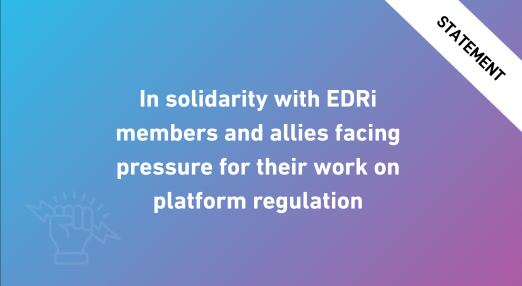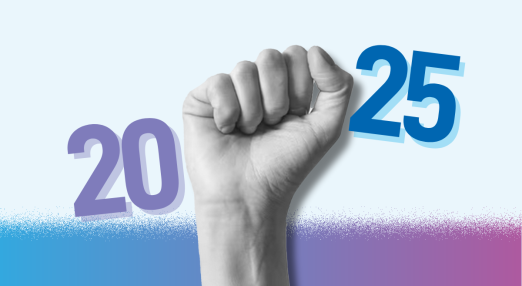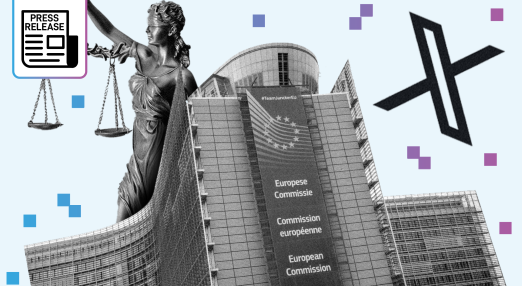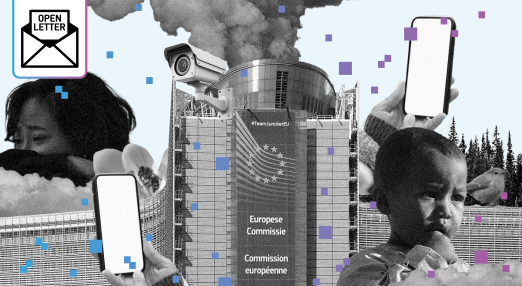Platform regulation
Filter resources
-

Statement of solidarity with EDRi members and allies facing pressure for their work on platform regulation
The EDRi network strongly condemns the pressure of the US Trump administration on EDRi members and allies for our work on online platform regulation.
Read more
-

EDRi’s 2025 in review: we resisted, we persisted
As for most civil society organisations, 2025 was a tumultuous and challenging year for EDRi. Shifting political landscapes and shrinking civic space have made the work of civil society in Europe and around the world increasingly difficult for years . Yet we have nevertheless found many reasons to hope, celebrate, resist and persist.
Read more
-

New research reveals how Snapchat uses notifications to manipulate users
A new study by Bits of Freedom shows that Snapchat sends users misleading notifications. This is banned under the Digital Services Act which prohibits misleading and manipulative design on online platforms. The results of this study make for important input into possible DSA enforcement actions and support including rules about attention-grabbing notifications in the upcoming Digital Fairness Act.
Read more
-

Press Release: EU stands up to Big Tech with €120 million fine to X
The European Commission took aim at X for breaking the DSA, proof that Europe’s landmark law can bite. Despite political pressure and corporate pushback, the EU is showing that online platforms can and will be held accountable for practices that mislead users, cause harm, or undermine democracy.
Read more
-

Judge grants Meta limited postponement in Bits of Freedom lawsuit
In early October, digital human rights organization Bits of Freedom took Meta to court. The organization demanded that Meta offers its users on in apps such as Instagram and Facebook the option to choose a feed that is not based on profiling. The judge ruled in favour of Bits of Freedom and ordered Meta to modify its apps within two weeks. Meta claimed that such changes were impossible to deliver in that timeframe and asked the Amsterdam Court of Appeal for a postponement. The court has now ruled that Meta will indeed be granted a postponement.
Read more
-

A fair digital future at risk: EDRi’s contribution to the Digital Fairness Act
The European Commission closed its Call for Evidence for the upcoming Digital Fairness Act (DFA) on 24 October 2025. EDRi urged the Commission to tackle deeply harmful forms of manipulation: addictive design, deceptive design, and unfair personalisation, which undermine people’s fundamental rights to privacy, data protection, autonomy and equality. EDRi calls for strong, binding rules that embed fairness-by-design, ban exploitative features, and reinforce Europe’s digital rulebook against growing deregulatory pressure.
Read more
-

The DMA is a success, it should be strengthened and expanded
Despite its somewhat disappointing enforcement so far, the EU’s Digital Market Act has become a global role model for modern antitrust policy. While Europe figures out its implementation, we should already work on expanding the law’s scope and strengthen its provisions. Here is how to make the DMA even better.
Read more
-

Why Europe’s new tech laws have the world on edge
Trump and the global far-right are trying to discredit Europe’s tech laws with misinformation and political pressure, fearing that these regulations might disrupt their ability to undermine democracy. If Europe wants to safeguard its democracy and its credibility as a global regulatory leader in tech, the European Commission needs to enforce these laws swiftly and decisively.
Read more
-

Deregulating digital rights: Why the EU’s war on ‘red tape’ should worry us all
The European Commission has made deregulation a top priority for the EU over the next four years. Under the banner of ‘simplifying’ EU rules, we risk seeing the entire digital rulebook – for which we have advocated for years – being stripped away. If the EU wants a healthy, competitive tech market that puts people at its center, then this deregulation push is not only bad for the protection of fundamental rights, but is also an act of self-sabotage which must be reversed.
Read more
-

Open Letter: The EU weakens the rules that safeguard people and the environment
470 civil society society organisations, trade unions and public interest groups are making it clear to European Commission President Ursula von der Leyen, European Commissioners and EU Member States that our rights, planet, health and justice are not for sale. They call on EU lawmakers to protect and promote the rights enshrined in the EU Charter and international human rights law, instead of endangering them.
Read more
-

Civil society files joint DSA complaint against X for targeting people with ads using their sensitive personal data
Nine civil society organisations, including EDRi, submitted a complaint against X for violating the Digital Services Act (DSA) by using people’s sensitive personal data for targeted ads. Together, we are calling for Digital Services Coordinators and the European Commission to promptly investigate X, and hold it to accountable for undermining users’ fundamental rights.
Read more
-

New research shows online platforms use manipulative design to influence users towards harmful choices
New research by Bits of Freedom investigated social media platforms Facebook, Snapchat and TikTok, and e-commerce platforms Shein, Zalando and Booking.com for their use of manipulative design. The worrying findings indicate that these platforms continue to nfluence the choices of users to their detriment despite being prohibited by laws.
Read more
